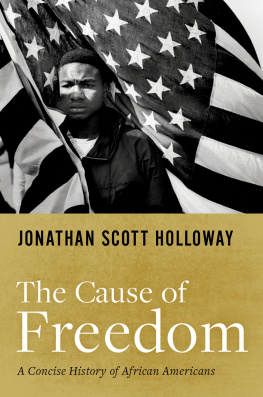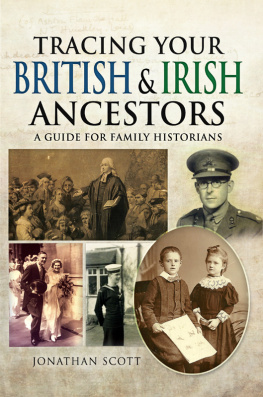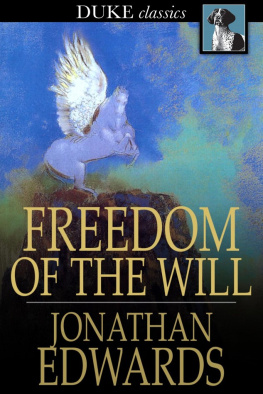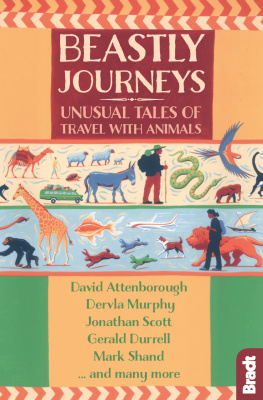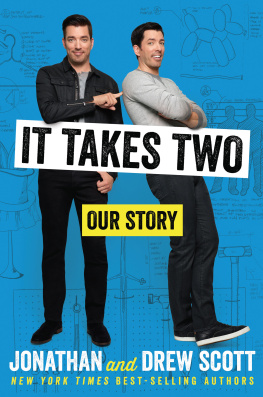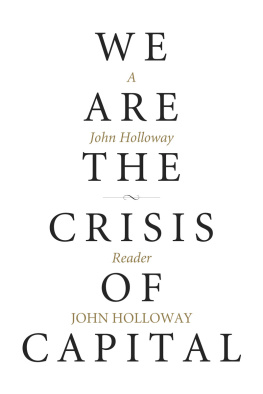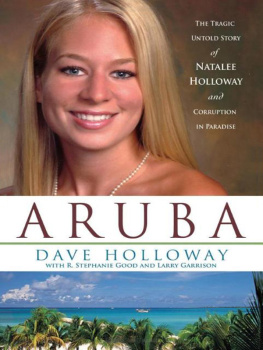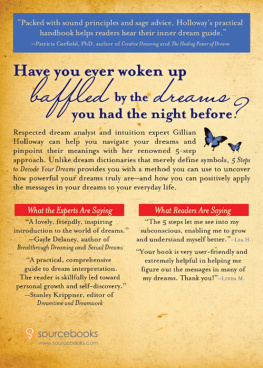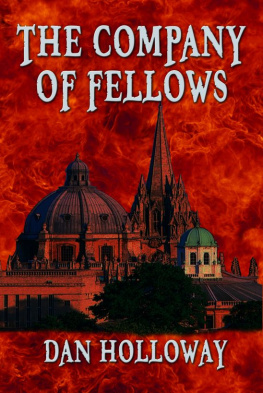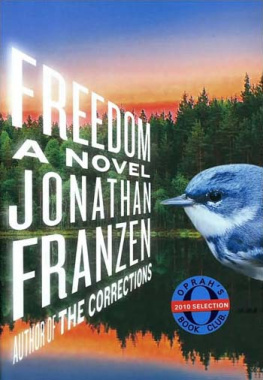Jonathan Scott Holloway - The Cause of Freedom
Here you can read online Jonathan Scott Holloway - The Cause of Freedom full text of the book (entire story) in english for free. Download pdf and epub, get meaning, cover and reviews about this ebook. year: 2020, publisher: Oxford University Press, genre: Politics. Description of the work, (preface) as well as reviews are available. Best literature library LitArk.com created for fans of good reading and offers a wide selection of genres:
Romance novel
Science fiction
Adventure
Detective
Science
History
Home and family
Prose
Art
Politics
Computer
Non-fiction
Religion
Business
Children
Humor
Choose a favorite category and find really read worthwhile books. Enjoy immersion in the world of imagination, feel the emotions of the characters or learn something new for yourself, make an fascinating discovery.
- Book:The Cause of Freedom
- Author:
- Publisher:Oxford University Press
- Genre:
- Year:2020
- Rating:5 / 5
- Favourites:Add to favourites
- Your mark:
- 100
- 1
- 2
- 3
- 4
- 5
The Cause of Freedom: summary, description and annotation
We offer to read an annotation, description, summary or preface (depends on what the author of the book "The Cause of Freedom" wrote himself). If you haven't found the necessary information about the book — write in the comments, we will try to find it.
The Cause of Freedom — read online for free the complete book (whole text) full work
Below is the text of the book, divided by pages. System saving the place of the last page read, allows you to conveniently read the book "The Cause of Freedom" online for free, without having to search again every time where you left off. Put a bookmark, and you can go to the page where you finished reading at any time.
Font size:
Interval:
Bookmark:


Oxford University Press is a department of the University of Oxford. It furthers the Universitys objective of excellence in research, scholarship, and education by publishing worldwide. Oxford is a registered trade mark of Oxford University Press in the UK and certain other countries.
Published in the United States of America by Oxford University Press
198 Madison Avenue, New York, NY 10016, United States of America.
Oxford University Press 2021
All rights reserved. No part of this publication may be reproduced, stored in a retrieval system, or transmitted, in any form or by any means, without the prior permission in writing of Oxford University Press, or as expressly permitted by law, by license, or under terms agreed with the appropriate reproduction rights organization. Inquiries concerning reproduction outside the scope of the above should be sent to the Rights Department, Oxford University Press, at the address above.
You must not circulate this work in any other form and you must impose this same condition on any acquirer.
Library of Congress Cataloging-in-Publication Data
Names: Holloway, Jonathan Scott, author.
Title: The cause of freedom : a concise history of African Americans /
by Jonathan Scott Holloway.
Description: New York, NY : Oxford University Press, [2021] |
Includes bibliographical references and index.
Identifiers: LCCN 2020037167 (print) | LCCN 2020037168 (ebook) |
ISBN 9780190915193 (hardback) | ISBN 9780190915216 (epub)
Subjects: LCSH: African AmericansHistory. | African Americans
Civil rightsHistory. | United StatesRace relationsHistory.
Classification: LCC E185 .H565 2021 (print) | LCC E185 (ebook) |
DDC 973/.0496073dc23
LC record available at https://lccn.loc.gov/2020037167
LC ebook record available at https://lccn.loc.gov/2020037168
For the next generation, no matter where on the road they may be:
Yvette, David, Caitlyn, Victoria, Brian, John, Wendell, Hank, Luke, Zoe, Emerson, Ellison, and Max
The cause of freedom is not the cause of a race or a sect, a party or a classit is the cause of human kind, the very birthright of humanity.
Anna Julia Cooper, A Voice From The South (1892)
Although this is a short book, I received a lot of support in the process of its becoming. I must start these acknowledgments with Lucy Caplan. Lucy graciously signed on to this project while she was wrapping up her dissertation and stayed with it even after earning her degree. While Lucy is an incredibly talented writer and editor, she was also an important conceptual collaborator, and this project is considerably better for her suggestions and insights.
Lara Beise deserves special recognition. We have worked together for six years now. All the while, she has patiently managed my time so that I can take on additional projects while still meeting my administrative duties. Lara facilitated the completion of this project in substantive ways and I am beholden to her for her steadfast assistance.
I also want to thank all of the students Ive had the honor to teach in my survey course, African American History: Emancipation to the Present. What I learned from them, as well as from the graduate students who helped me run the course for almost two decades, has shaped this book in significant ways.
While the conceptual roots of this project are based in those lecture courses at Yale University, I am grateful for the research support at Northwestern and Rutgers that allowed me to develop and then bring this project to completion.
Finally, I acknowledge my family: Aisling, Emerson, and Ellison. Working on this book during my free time meant that I was less available for them. I choose to believe that they viewed this as a loss for which they had to find their own compensation. But that, I realize, may just be my version of history. Whatever the truth happens to be, I remain grateful to these amazing people all the same.
What does it mean to be American?
In telling the story of the African American past, The Cause of Freedom demonstrates how difficult it is to answer this question. Even if we ignore for a moment that the history of the African American presence in North America predates the establishment of this country by over 150 years, we are left with a puzzle: the United States of America takes great pride in its commitment to freedom and yet somehow accepted the preservation of slavery in its founding documents. Similarly, in a country that places so much rhetorical importance on the equality of opportunity, we have reconciled ourselves too easily to the sense that theres little more to be done to make accommodations for the structural inequalities that were birthed by racialized slavery and that remain with us in the present day.
Deciding what it means to be American, however, does not go far enough in terms of capturing the totality of the African American past. Other deceptively brief questions invite similarly complicated answers. For example, because the African American past predates the founding of the United States, and because that pre-Declaration history is overwhelmingly defined by the daily brutalities associated with racialized slavery, it is useful to pose the broader question What does it mean to be human? Asking this question helps us gain insight into the English settlers mindset as they justified creating a system of racialized chattel slavery in colonial Virginia to replace the system of indentured servitude that they brought with them when they initially crossed the Atlantic.
Connecting the question about humanity and Americannessand in so doing linking the English settlers in Jamestown, Virginia, to the newly self-declared Americans in Philadelphia, Pennsylvania, some 150 years lateris another conjecture: What does it mean to be a citizen? This question, still being asked today, guides us toward an understanding of how the presence of enslaved Africans created an existential crisis for those who disagreed about the boundaries of freedom. Even for abolitionists who believed that slavery was a sin, the breadth of what was meant by freedom for enslaved Africans was a deeply contested idea. That contest was a conceptual one as much as it was literal. The increasing ideological tension between northern and southern states regarding the role of a slave system in the nations economic and political spheres turned into the national bloodletting of the early 1860s. Roughly 750,000 Americans would die in the Civil War, a dispute, at its core, about who could be considered human, a citizen, and an American.
The issue of American citizenship, of belonging, is at the beating heart of the civil rights disputes that have erupted regularly in the more than 150 years since the end of the Civil War. While these disputes were made manifest over questions like equal access to transportation, high-quality education, healthcare and housing, and the ballot box, soon after the Civil War ended a different question began to be asked that echoed the debates about enslaved Africans humanity: What does it mean to be civilized? This question, born in the early years of this countrys industrial age and its dawning global ambitions, invited the most mean-spirited answers that were deployed to justify denying African Americans the fruits of American citizenship. In more instances than historians have been able to count, answers to this question came in the form of domestic terrorism that was designed to ensure that African Americans remained perpetually insecure and unable to assert their claims to their national birthright without risking their jobs, their homes, and even their lives.
Font size:
Interval:
Bookmark:
Similar books «The Cause of Freedom»
Look at similar books to The Cause of Freedom. We have selected literature similar in name and meaning in the hope of providing readers with more options to find new, interesting, not yet read works.
Discussion, reviews of the book The Cause of Freedom and just readers' own opinions. Leave your comments, write what you think about the work, its meaning or the main characters. Specify what exactly you liked and what you didn't like, and why you think so.

